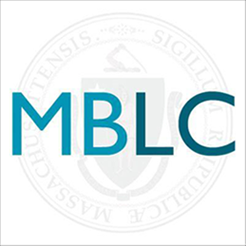Library News from Across the Commonwealth and the Nation*
Have a news story you’d like to share? Please email the link to MBLC Communications Specialist June Thammasnong, thank you!
🗞️ Local News
📄 State and Regional Sector Leaders Testify on $2.8M in Terminated NEA, NEH, and IMLS Grants – by Emily Ruddock, New England Foundation for the Arts (7/21/2025)
BOSTON (7/16/25) – On Tuesday, July 15, 2025, the House Committee on Federal Funding, Policy and Accountability held an oversight hearing by invitation to learn how recent federal funding cuts and the proposed elimination of federal arts agencies is impacting the creative sector in Massachusetts and communities that cultural organizations serve. MASSCreative, Mass Cultural Council, Mass Humanities, New England Foundation for the Arts, New England Museum Association, and other local, state, and regional cultural organizations were invited to testify before the House Committee and their guests from the Joint Committee on Tourism, Arts and Cultural Development.
Link to full article from the New England Foundation for the Arts
Link to hearing details and to view full testimonies, including testimonies from MBLC Director Maureen Amyot, American Library Association President Maria McCauley and Boston Public Library President David Leonard
📄 FY2026 State Budget and Library Legislation – MBLC News Release (7/10/2025)
Governor Maura Healey recently signed the $60 billion FY2026 state budget which includes $52,411,000 for libraries. The budget level funds all but two Massachusetts Board of Library Commissioners (MBLC) budget lines: the Board of Library Commissioners Support and Outreach Services line (7000-9101) which was reduced by $21,341 and Technology and Resource Sharing line (7000-9506) which received a $3,210 increase. The full budget chart is available on the MBLC website.
Link to full article from the MBLC
📄 Library cuts threaten the “bridge across the digital divide”– by Sam Drysdale, State House News Service (7/16/2025)
BOSTON (SHNS) – Summer reading programs, English language classes, online research databases used in public schools across the state, free newspaper archives, e-book access, and GRE and career prep resources are on the chopping block as a cut to federal funding is poised to hit Massachusetts libraries.
Link to full article from State House News Service posted on 22 NEWS WWLP
📄 Federal cuts to library services could impact research tools used mostly by students – by Phillip Bishop, New England Public Media (7/21/2025)
Federal cuts to library service funding could disrupt key resources that could lead to struggles for students in the next school year.
Link to full article from New England Public Media
📄 E-books rise, budgets fall: Berkshire libraries navigate a shifting landscape – by Dylan Thompson, The Berkshire Eagle (7/28/2025)
LANESBOROUGH — Even as public libraries face federal funding cuts, staff shortages and rising demand for digital media, Lanesborough Public Library Director Sheila Parks believes libraries are “more important than ever.”
Link to full article from The Berkshire Eagle
📄 FY2026 MBLC Officers Elected – MBLC News Release (7/10/2025)
The Massachusetts Board of Library Commissioners (MBLC) elected new officers to serve for FY2026 at its Board Meeting on July 10, 2025.
Link to full article from the MBLC
📄 MassArt at the Library Returns – MBLC News Release(7/10/2025)
MassArt at the Library is returning for another summer of connecting people to art through workshops at public libraries. The program, sponsored by The Massachusetts College of Art and Design (MassArt) and the Massachusetts Board of Library Commissioners (MBLC), places MassArt faculty and student ambassadors in public libraries so that children and teens can experience the benefits of art creation, learn about the creative process, connect with MassArt faculty and students, and explore art as a possible career path.
Link to full article from the MBLC
📄 Chapters in chairs: ‘Lounging for Literacy II’ draws 240 to Westhampton Library – but no new world record – by Samuel Gelinas, Daily Hampshire Gazette (7/10/2025)
WESTHAMPTON — Exactly 240 people came out with their lawn chairs on Saturday at the town’s library in hopes of being a part of a world record for the largest gathering of people reading in lawn chairs.
Link to full article from the Daily Hampshire Gazette
📄 Boston Bruins helping boost literacy through summer reading program – by Matt Price and Ryan Trowbridge, Western Mass News (7/22/2025)
RUSSELL, MA (WGGB/WSHM) – While school is out, kids are still being advised to do a little summer reading and, in Russell on Tuesday, some of those young ones got a little sports surprise from Boston to get them motivated.
Link to full article from Western Mass News
More articles on the Blades visit to Russell Public Library:
📄 Boston Bruins mascot, Blades, takes center ice at Hadley Library – by Scott Merzbach, Daily Hampshire Gazette (7/23/2025)
HADLEY — Posing for pictures, signing autographs and participating in crafts and other activities, Blades, the mascot for the Boston Bruins, and more than 20 University of Massachusetts hockey players, thrilled hockey fans of all ages at the Hadley Public Library Tuesday afternoon.
Link to full article from Daily Hampshire Gazette
🗞️ National News
📄 Early Closure of House Leaves IMLS Future Hanging; What This Means & What You Can Do – by Kelly Jensen, Book Riot (7/29/2025)
On March 14, the Trump administration announced via an Executive Order that the only federal agency dedicated to public libraries and museums, the Institute of Museum and Library Services (IMLS) would be dismantled. Since that time, employees have been laid off and federal funding has been revoked and reinstated nationwide. The Trump-appointed acting director of the agency, Keith Sonderling, made clear that the purpose of the agency going forward would be state propaganda.
Link to full article from Book Riot
📄 Senators—Including Republicans—Reject All of Trump’s Proposed Education Cuts – by Mark Leiberman, Education Week (7/31/2025)
Key U.S. senators from both parties on Thursday decisively rejected virtually all the Trump administration’s proposals to slash K-12 education investments—and pushed back against its efforts to shrink the Department of Education and move its functions to other agencies.
Link to full article from Education Week
📄 The Trump Administration is Threatening Libraries, Museums, and Other Nonprofits That Support the Arts, Humanities and Learning – by Cristin Dorgelo, Center on Budget and Policy Priorities (7/7/2025)
The Trump Administration is attacking federal support for thousands of community libraries, museums, and other nonprofits that support the arts, humanities, and learning, diminishing programs and services provided daily to families across every U.S. state and territory.
Link to full article from the Center on Budget and Policy Priorities
📄 The Trump Administration is Threatening Libraries, Museums, and Other Nonprofits That Support the Arts, Humanities and Learning – by Cristin Dorgelo, Center on Budget and Policy Priorities (7/7/2025)
The Trump Administration is attacking federal support for thousands of community libraries, museums, and other nonprofits that support the arts, humanities, and learning, diminishing programs and services provided daily to families across every U.S. state and territory.
Link to full article from the Center on Budget and Policy Priorities
📄 Large Public Libraries Give Young Adults Across U.S. Access to Banned Books– by Claire Woodcock, EdSurge (7/3/2025)
Young adults are finding it harder to borrow books reflective of their lived experiences in their schools and public libraries. It isn’t because these stories don’t exist — they do — but because they’ve been challenged and removed, restricted, or were never purchased at all.
Link to full article from EdSurge
📄 Libraries Pay More for E-Books. Some States Want to Change That. – by Erik Ofgang, The New York Times (7/16/2025)
It’s hard to imagine a library that doesn’t carry “Fahrenheit 451.” But making Ray Bradbury’s classic novel about book burning available to libraries in an e-book format can be its own little dystopian nightmare, according to Carmi Parker, a librarian with the Whatcom County Library System in northwest Washington.
That’s because library access to digital books and digital audiobooks — often collectively referred to as e-books — generally costs much more than the print version of these books.
Link to full article from The New York Times
📄 More than 90 Authors to Join the 25th Library of Congress National Book Festival – Library of Congress Press Release (7/8/2025)
Uniting book lovers for 25 years, the Library of Congress National Book Festival will return on Saturday, Sept. 6, 2025, at the Walter E. Washington Convention Center in Washington, D.C. Throughout the day, attendees will hear conversations with more than 90 authors whose literary genres range from fiction to nonfiction, picture book to biography, poetry to young adult, and more.
Link to full article from the Library of Congress Newsroom
📄 Trump has fired the head of the Library of Congress, but the 225-year-old institution remains a ‘library for all’ – so far – by Alex H. Poole, The Conversation (7/23/2025)
Carla Hayden, the 14th librarian of Congress, who has held the position since 2016, received an unexpected email on May 8, 2025.
“Carla, on behalf of President Donald J. Trump, I am writing to inform you that your position as the Librarian of Congress is terminated effective immediately. Thank you for your service,” wrote Trent Morse, deputy director of presidential personnel at the White House.
Link to full article from The Conversation
📄 The Internet Archive just became an official U.S. federal library – by Chase DiBenedetto, Mashable (7/25/2025)
Internet Archive — the no-cost, nonprofit digital library that has become embroiled in the nationwide battle over copyrights and free speech — is now an official source for government documents. According to a new designation announced by California Senator Alex Padilla, the website will join a network of more than 1,000 libraries around the country tasked with archiving government documents for public view. Unlike other designated federal depository libraries, as they are known, the Archive is entirely online.
Link to full article from Mashable
📄 School Librarians Share Concerns, Hopes in the New School Year – by Kara Yorio, School Library Journal (7/30/2025)
At a Title I district in New Jersey, a high school librarian was already concerned about her students heading into the 2025–26 school year. The loss of Institute of Museum and Library Services funding meant limited or possibly no databases for research. Frozen federal funding threatened after school programs that keep kids safe, fed, and on-track academically. Then, on July 14, the Supreme Court issued a shadowdocket ruling with no explanation that allows the Trump administration to proceed with its dismantling of the Department of Education. And the librarian’s worries escalated.
Link to full article from School Library Journal
📄 The 10 most beautiful libraries in the world – by Kaela Ling, CNBC (7/31/2025)
Some libraries aren’t just places to borrow books — they’re destinations with deep history and architecture that tell stories beyond the pages.
The 1000 Libraries Awards 2025 highlights some of the most beautiful libraries and bookstores globally, according to200,000 online voters.
Link to the full article from CNBC
*Links provided to external (non-MBLC) news stories are done so as a convenience and for informational purposes only; they do not constitute an endorsement or an approval by the MBLC. MBLC bears no responsibility for the accuracy, legality, or content of the external site or for that of subsequent links. Contact the external site for answers to questions regarding its content.

